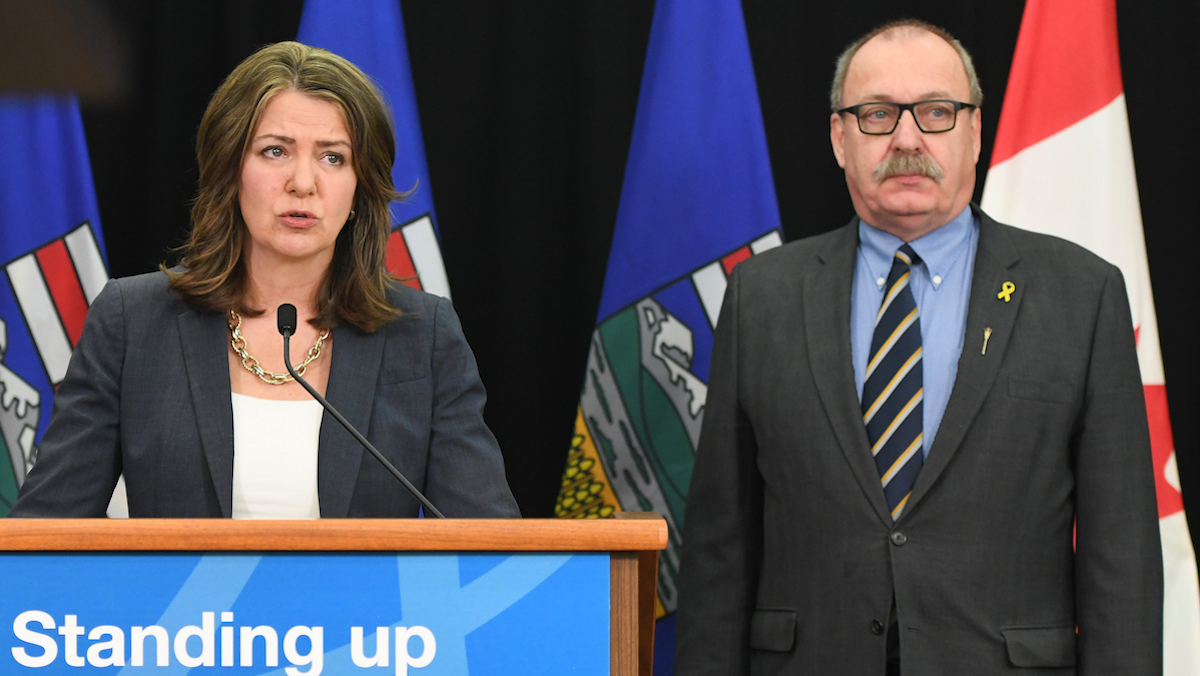Does Municipal Affairs Minister Ric McIver have any idea how many Albertans could be denied the right to vote in the next general election because of the United Conservative Party (UCP)’s planned changes to provincial voting rules in Bill 20, the Municipal Affairs Statutes Amendment Act, 2024?
If he does – and you’d think he would – nobody’s bothered to ask him about it yet.
But according to University of Alberta political Scientist Jared Wesley, the number could be anywhere from 10,000 to 50,000 eligible voters – all to solve a problem that doesn’t exist by making it impossible for neighbours and co-workers with ID to vouch for people they know at a polling station.
“Bill 20 is aimed at a bunch of boogiemen,” Dr. Wesley tweeted Friday. “From fake voters to rogue councillors to unlawful bylaws – not one shred of evidence. Just fear and feelings.”
The bill’s targets may be boogiemen, as Professor Wesley asserts, but despite McIver’s claims that it’s just been put on the legislative agenda to make it a little easier for the government to exercise powers it already has in an emergency, the goal is understandable if not particularly palatable.
It’s clearly intended to give the UCP the power to influence who gets to vote, and if municipal voters ignore their wishes anyway, to overcome the democratic will of progressive voters in Alberta’s big cities.
This is right in line with the NDP Opposition’s accusation the UCP is trying “to control everything, everywhere, all at once,” which was a good line the first few of times it was used, but is not a very effective way to attack an example of genuinely undemocratic government overreach.
On Thursday, in reaction to some of the features of the bill that aroused the ire of municipal councillors in the UCP’s rural heartland, McIver introduced some amendments that don’t really change the additional powers the bill will give the government.
Those changes would no longer allow cabinet to fire a municipal councillor in absentia during a secret cabinet meeting – it would only be able to disrupt said councillor’s ability to get anything done by ordering a vote to remove them from office. Better, I guess, but not much.
As for provisions that would allow the cabinet to veto municipal bylaws, a few vague stipulations will be added to give the impression of due process. It would still be an undemocratic decision made in secret.
As the president of the Rural Municipalities of Alberta complained Friday, the amendments won’t stop the province from intruding into the legitimate authority of municipal governments.
With no clear definition of the public interest or provincial policy, Paul McLaughlin told The Canadian Press, the law could be used to let the cabinet interfere with municipal decisions for any old reason or whim.
Warning the government has “empowered a monster,” he argued the bill might give some future government – an NDP one, presumably – “the largest baseball bat you can imagine.
Seasoned observers of Alberta politics will understand that it’s the monster that has armed itself with a big bat that we actually need to worry about.
The Canadian Press also quoted Edmonton-Gold Bar NDP MLA Marlin Schmidt that as a result of the legislation, which is certain to be passed by the government majority in the House, UCP MLAs will need to brace themselves to start taking angry calls for municipal taxpayers mad about local issues like pothole complaints and cat bylaws – a possibility noted in this space back on May 7.
“This government has created 1-800-hate-my-councillor,” McLaughlin agreed. “They’re going to be inundated.”
That’s not necessarily a bad thing, of course.
In a Substack column published on May 7, Dr. Wesley outlined reasons the UCP’s voter ID restrictions are a bad idea. Among them: That it could block up to 50,000 Alberta citizens who are entitled to cast a ballot from voting and, at the same time, it would not prevent non-citizens from voting.
“Fact is: non-citizens qualify for most forms of photo ID, including driver’s licenses. A federally issued passport is the only form of photo ID that proves you are a citizen,” he wrote. “So voter ID won’t solve that imagined problem, either, unless you want the federal government to verify who’s eligible to vote in Alberta elections.”
What’s more, Dr. Wesley said, most voters don’t support the idea. “According to the government’s own survey, only 30 per cent of Albertans favour measures like Bill 20 that would ban vouching. Forty-six percent want to keep it. This level of support is likely rooted in the fact that over 100,000 Albertans have vouched or been vouched for in previous elections.”
Why would the UCP government want to do that? Well, Dr. Wesley answered that question in another Substack published on May 3. “Voter ID laws like those included in Alberta’s Bill 20 are designed with a primary objective in mind: limiting the types of people allowed to cast ballots so the government can win elections.”
In other words, so the UCP can pick who gets to vote.



